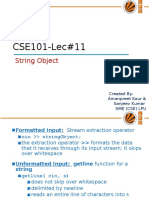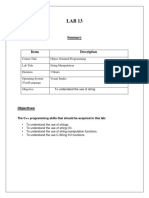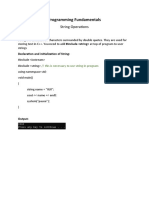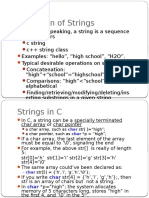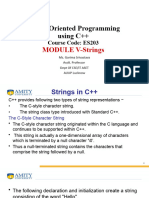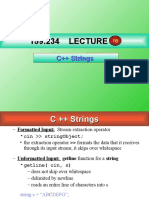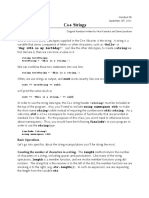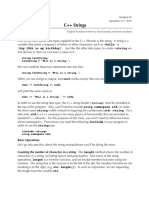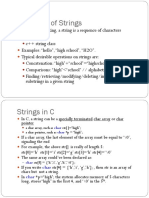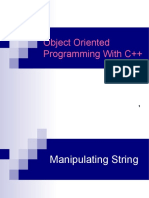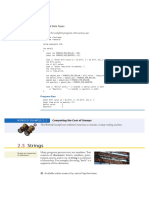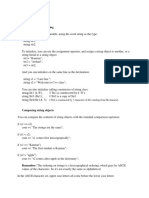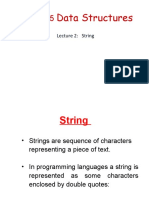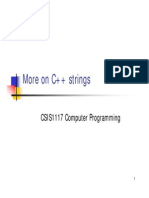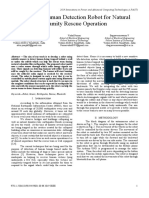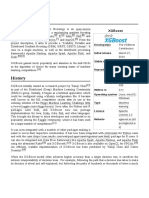0% found this document useful (0 votes)
15 views9 pagesC++ Strings Study Guide
This C++ Strings Study Guide covers fundamental concepts of strings, including declaration, input/output, properties, modification, search operations, and comparison. It also discusses string conversion, iteration methods, common algorithms, performance considerations, and best practices. Additionally, it provides practice problems for different skill levels to enhance understanding of string manipulation.
Uploaded by
vadersback04Copyright
© © All Rights Reserved
We take content rights seriously. If you suspect this is your content, claim it here.
Available Formats
Download as PDF, TXT or read online on Scribd
0% found this document useful (0 votes)
15 views9 pagesC++ Strings Study Guide
This C++ Strings Study Guide covers fundamental concepts of strings, including declaration, input/output, properties, modification, search operations, and comparison. It also discusses string conversion, iteration methods, common algorithms, performance considerations, and best practices. Additionally, it provides practice problems for different skill levels to enhance understanding of string manipulation.
Uploaded by
vadersback04Copyright
© © All Rights Reserved
We take content rights seriously. If you suspect this is your content, claim it here.
Available Formats
Download as PDF, TXT or read online on Scribd
/ 9
